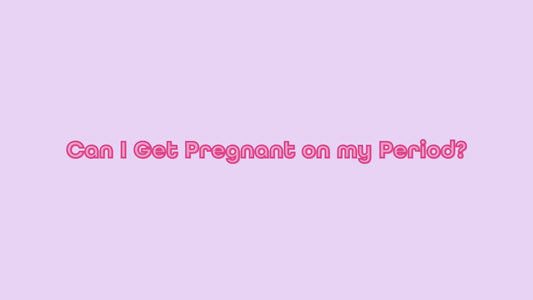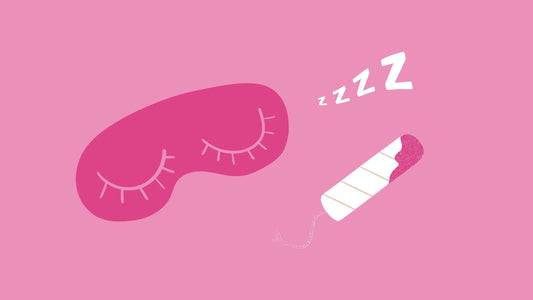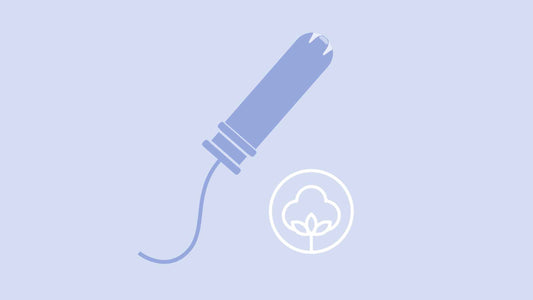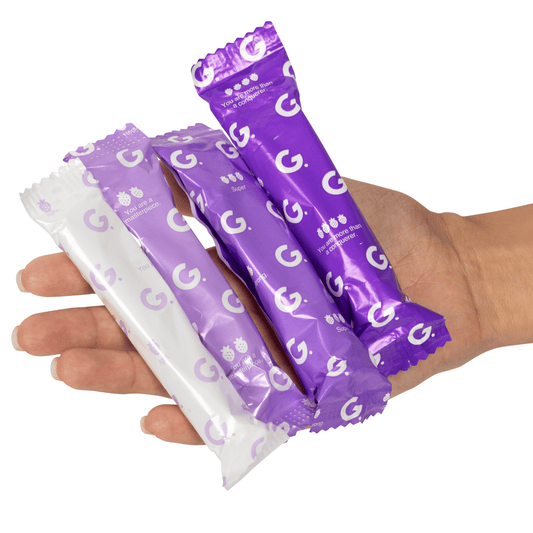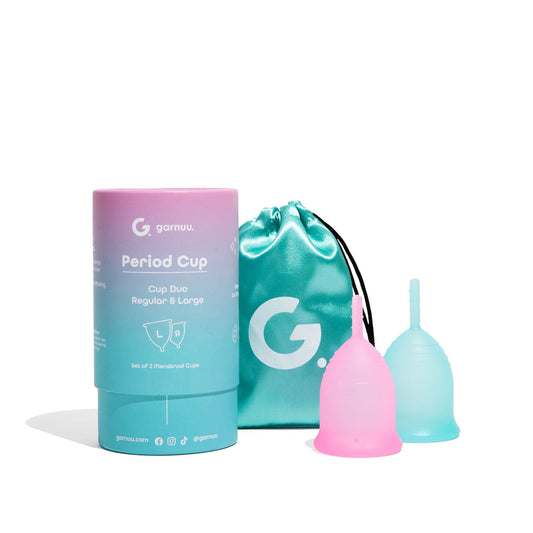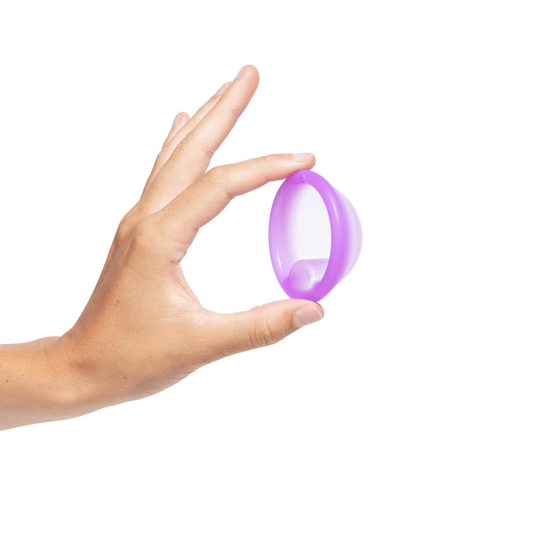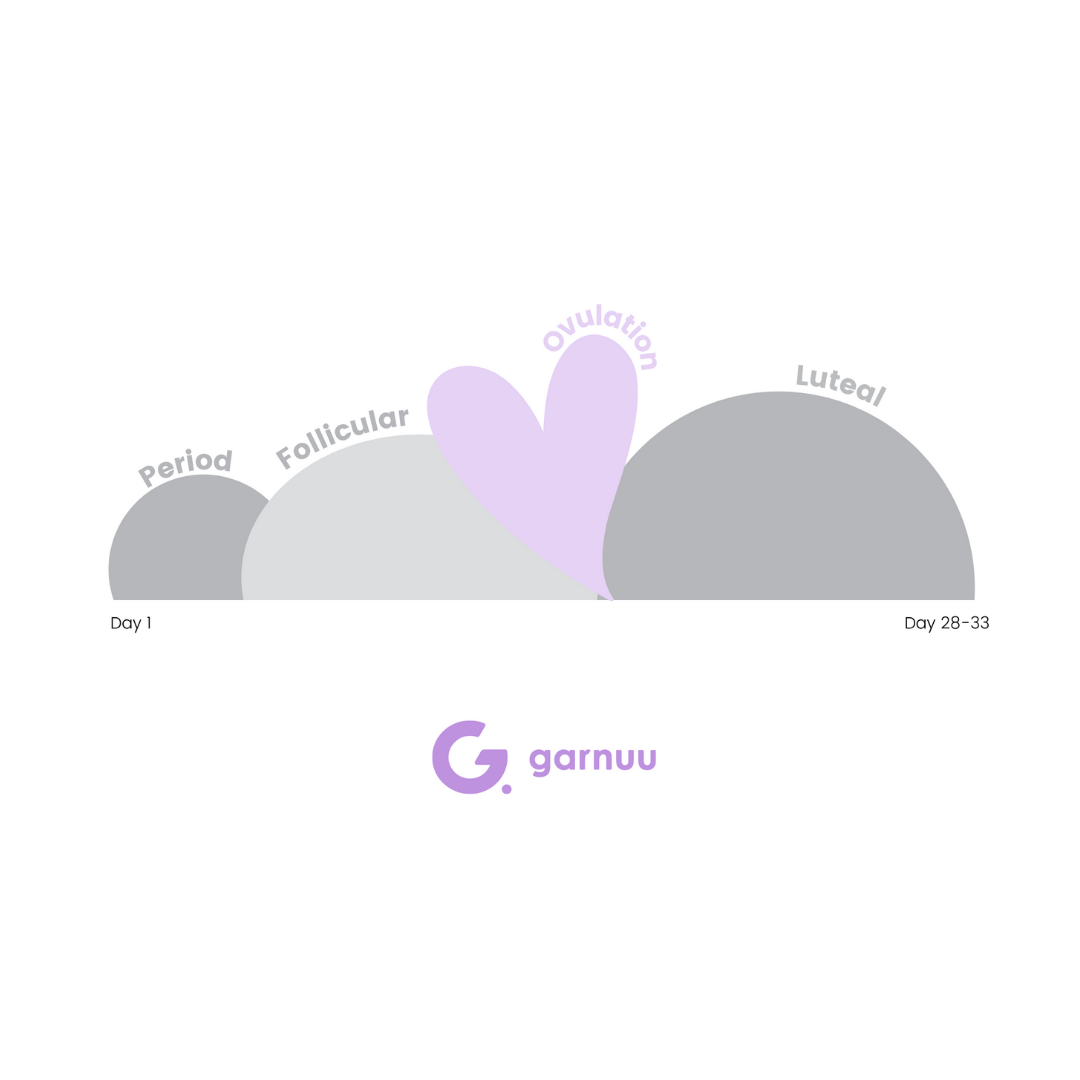
Ovulation: What You Need to Know
Share
Ovulation is one of those things that everyone talks about, but no one really knows much about. Besides the fact that ovulation is your most fertile time of the month, it’s also when you’re most likely to be really on your game.
Your face is more symmetrical, you’re more social, you can even put together sentences a little better. Whether you’re trying to get pregnant or using ovulation to empower you every month this article will set you up for success.
What is ovulation?
Ovulation is the release of an egg from your ovaries. It happens on average around day 14 (or between days 12-16) after you started bleeding during your period aka day 1 of your cycle.
Before ovulation
Follicles within the ovaries produce estrogens. A dominant follicle in the ovary is dominant around 10 mm in diameter. It's the same width as a grape or hazelnut. A normal follicle is about two centimeters in diameter and as big as 3.3 cm (15–19); FSH does exactly what its name signifies... stimulating cells and other components.
Ready for release
When estrogen reaches its normal size the egg will be ready for release. The brain also generates an outburst of LH, which induces ovulation 'elevation '. The release of the egg from follicular and ovarian areas happens about 24 hours later (10–12 hours after the LHC peak). At the end of the fallopian tube blood forms a finger-like structure which pulls in the egg out of the ovary and ushers it into the fallopian tube. Each ovary alternates turns on dropping eggs each month. That's why you might feel more pressure on your right side one month and more pressure on the other side the next month. In the meantime, the egg undergoes its own changes for the preparation of possible fertilization in the uterus.
After ovulation
If sperm is not fertilized and implanted onto the uterine lining then the luteal follicle degrades and hormone level drop in response to this. If there is pregnancy at any time the corpus luteum will have enough progesterone to develop as soon as possible. The placenta would then carry on this symptom until. If it is not fertilized, then you would begin the process to start your next period.
There are some women who have a shorter luteal phase and ovulate earlier, while others can prolong their cycle with high stress or low body fat and ovulate later (or even skip a month).
If you’re not tracking your cycle with an app like the Fertility Awareness Method or Menstrual Cycle Tracking, it can be hard to know where exactly you are.
Why ovulation matters?
If you're not ovulating during your fertile years, it could lead into osteoporosis cardiovascular disease and other cancers later in life. Athletes with menstrual dysfunction are significantly more likely to endure stress fractures when not ovulating. To maintain ovulation make sure to check with your doctor, however, a healthy diet works well to maintain ovulation. Including adequate amounts of progesterone and estrogen in foods to support optimal health including weight loss or weight gain, muscle health, heart health, metabolism, sleeping quality and overall good health.
What are the different phases of the menstrual cycle?

- When you get your period (which is day 1 of your cycle) your body is shedding the lining of your uterus that would prepare itself for a potential baby.
- Then your body enters the follicular phase where estrogen climbs and begins to reline your uterus.
- Generally, at the midpoint of your cycle, your body releases an egg that could be fertilized during ovulation.
- After you ovulate, you enter the luteal phase that if the egg was fertilized, your uterus would be preparing itself for a safe place for the baby. Pregnancy begins once a fertilized egg attaches to the womb. If the egg is not fertilized, it breaks apart and you begin your period again.
Hormone levels during your menstrual cycle

Woof. Now that we got that out of the way, let’s talk more about what this phase means and how you can take advantage of it!
How many days after your period are you fertile and ovulating?
Your menstrual cycle starts on the first day of your period and continues until the first date of your next period. You're most fertile just after ovulation (the moment when an egg emerges from the ovaries). It usually happens 12 to 14 days before your period starts.
Ovulation Symptoms:
How do I know when I'm ovulating?
Tracking your period, basal body temperature (BBT), and cervical mucus is the simplest way to determine when you’re ovulating.
Your BBT spikes within a day or two of ovulation, so keep an eye out for that jump. For most women, this will happen between days 12-16 after their period began (but before they start their luteal phase).
Your body will know when it's ovulating, it's your job to see the signs.
Tracking Ovulation through Basal Body Temperature (BBT)
If you’re not familiar with your basal body temperature (BBT), it can be a little confusing to know what changes in the number actually mean.
A good rule of thumb is that women typically ovulate (release an egg and start their luteal phase) about two days after they see a sustained rise in their BBT above 97.6°F to 98.6°F. Your average BBT before ovulation ranges from 97.0°F to 97.5°F.
Tracking Ovulation through Cervical Fluid
By tracking your cervical mucus with a chart (or your notes app), you’ll know when those secretions become more slippery and stretchy.
This is typically around ovulation but can vary from woman to woman depending on where she falls in her cycle.
If the humidity of your home or office keeps it dry, using a saliva test will give you an accurate reading as well. The mucus is your body's natural lubricant to help with conception.
Tracking Ovulation through your period
Your menstrual cycle can give you a good idea of when ovulation is happening, too. If it's your first month tracking your period or cervical mucus or basal body temperature then simply note the day that your flow started on for next month.
Next time around, look at how far along into the cycle you are based on where your cervical mucus and BBT are at.
Tracking your period alone, will not give you an accurate depiction of ovulation however it will give you a good idea.
When should I take an ovulation test?
Ovulation tests are also available. Many of them work like a pregnancy test, you simple pee on a stick. Ovulation test kits suggest you give a urine rinse if you have not urinated or had excessive hydration. LH normally rises in the morning between 4-8 am. If you test before LH first rises you may get a negative result that day, but you should still get a positive result the next day.
If you try to track the earliest rise from LH or if you are having trouble, try testing throughout the day and see what works best for your body and see how your body reacts to different temperatures.
How long does ovulation last?
Ovulation happens on day 14 on average but only lasts for 24-48 hours. This is due to the fact that it takes about 12-24 hours for an egg to be released and fertilized by sperm, but your body only has a small window of ovulation every month.
The sperm does last in a woman's body for 72 hours and in some cases up to 5 days.
Technically you can only get pregnant 1 day out of the month, but since there are other contributing factors plan for around 3-5 days for ovulation.
What are some other signs I'm ovulating?
You may notice more acne around this time, increased libido, more confidence, and you actually may be prettier around this time of the month.
There have been some studies that show people find their faces more attractive during ovulation and more symmetrical.
Often women report a surge in energy and sex drive as well, but this varies from woman to woman. You may also start to notice that you are more social and your speech is quicker.
What you should be eating during ovulation?
You don’t need to do anything special here, but some women swear that they're more hungry and crave certain foods around ovulation.
Some women find that increasing their intake of healthy fats and proteins helps them feel more focused around this time.
You’ll want to focus your diet around foods with high amounts of Vitamin A. Whether you think it impacts your chances of conceiving or not there are a few key nutrients during ovulation including Vitamin A, Vitamin C, iron, zinc, and folate.
Since your body temperature is higher around this time of the month, you may crave colder foods such as salads and smoothies.
Check out our instagram for some smoothie recipes!
How should I workout during ovulation?
Exercise is an important part of life whether or not you want to have a baby.
It's good for your heart but also helps with ovulation by giving your body the tools it needs to get pregnant including healthy blood flow. Healthy blood flow brings hormones to where they need to be so that eggs can mature properly.
You will be on your highest game during ovulation, so this is the time to increase your workouts, run races, or schedule competitions.
What are my chances of getting pregnant during ovulation?
As long as you have a regular and healthy cycle, the chance of getting pregnant during ovulation is fairly high. Ovulation can occur anywhere between day 11-21 of a woman's menstrual cycle.
It takes the sperm about three days to fertilize and implant in your uterus so you can actually get pregnant up to five days after ovulation.
Your body only has one egg released during each monthly cycle so the chances of getting pregnant are very slim if you have intercourse after ovulation.
The fertilized egg will travel through your fallopian tubes to implant in your uterus so it takes about three days for this process to happen as well.
Your BBT should stay elevated between 97°F and 98°F for at least 12-16 days following ovulation. Your cervical mucus begins to change immediately after ovulation. It will become more stretchy, clear and slippery before your menstrual period is due.
If you are trying to get pregnant it’s recommended that couples have intercourse up to five days prior to ovulation as well as the day of ovulation for optimal chances of conception.
Can I get pregnant after ovulation?
After ovulation a girl can get pregnant. Ongoing sex occurs within 14–28 days following the formation of mature eggs in the women and if they were healthy they might still be able to conceive. Ovulation occurs when any ovaries release mature eggs. It's now time for the body to receive sperm for reproduction.
Top things to know about ovulation
If you are trying to conceive or just trying to figure out when your optimal time of life is--knowing when ovulation occurs is crucial!
- This is the best time to get pregnant every month.
- Your body is in prime condition for many things besides fertilization. Your speech is quicker, you're more attractive, you have more energy, and you are more social.
- Your body temperature is rising.
- To fully track ovulation you will need to use some external resources to get an accurate read on your body cues.
Now you can start scheduling those important meetings, increasing your workouts, and socializing more during this time of the month.
Or if you're trying to get pregnant, you can plan for life at conception when you know when ovulation occurs. We hope you enjoyed this article!
About Garnuu
At Garnuu we do periods that don't cramp your style. Get your 100% organic tampons and menstrual cups delivered to your door all while fighting human trafficking as you do it!
DISCLAIMER: This content was written for informational purposes to educate women only. It is not medical advice.



